Click on photo to start video.
“Does Aubrey de Grey make SENS?” This is episode 12 of my Pessimistic Guide to Anti-Aging Research. I describe (and judge) some elements of A. de Grey’s numerous activities.
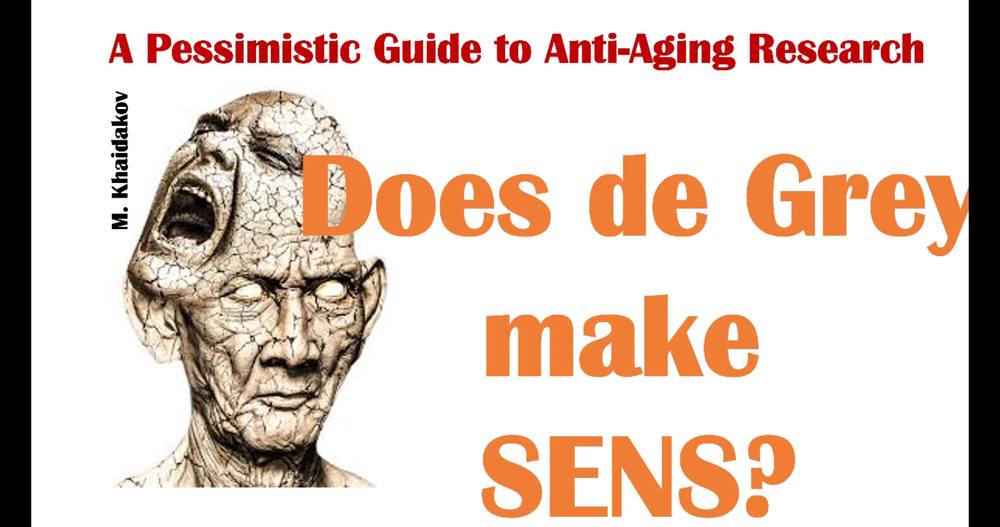


World renowned Harvard professor and anti-aging expert David Sinclair was recently on the Joe Rogan Podcast. For over 2 hours, he discussed some of the keys to maximizing the human lifespan. We’ve condensed his advice into five things you can do right now to battle the aging process with information that is current, researched, and powerful. So if you’ve interested in learning how to maximize your chances to live longer, take a look at the information below.

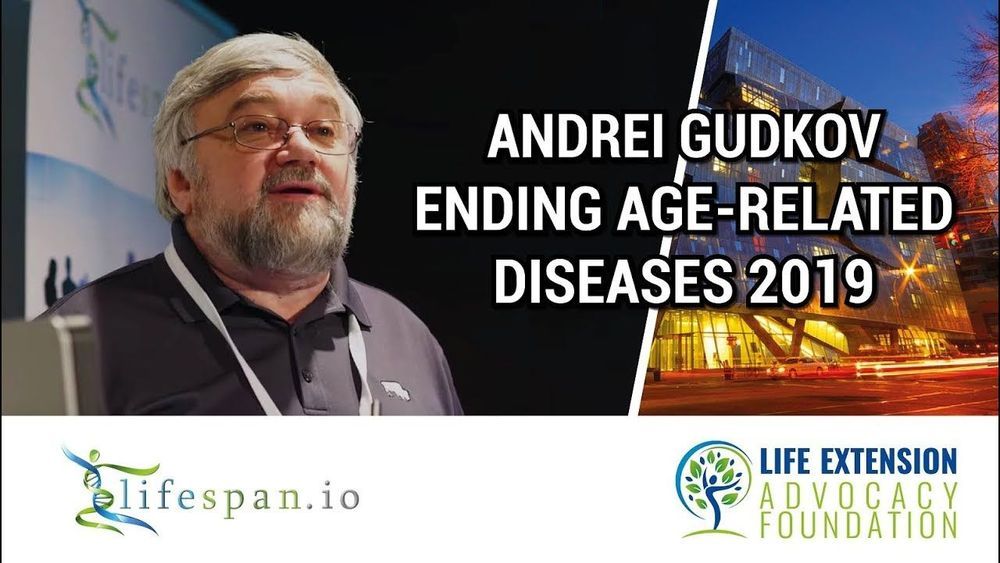
We’re continuing to release talks from Ending Age-Related Diseases 2019, our highly successful two-day conference that featured talks from leading researchers and investors, bringing them together to discuss the future of aging and rejuvenation biotechnology.
Dr. Andrei Gudkov of the Roswell Park Comprehensive Cancer Center gave a highly technical and in-depth presentation about the retrobiome, a specific subset of genetics that vary between mammalian species, as a key driver of aging. According to this model, as DNA damage accumulates, senescent cells are less efficiently disposed of by the immune system, strongly contributing to the familiar diseases of aging. He also discussed related topics, including how LINE1 (RTL1), a protein that is produced as part of the retrobiome, may be effective against cancer proliferation.
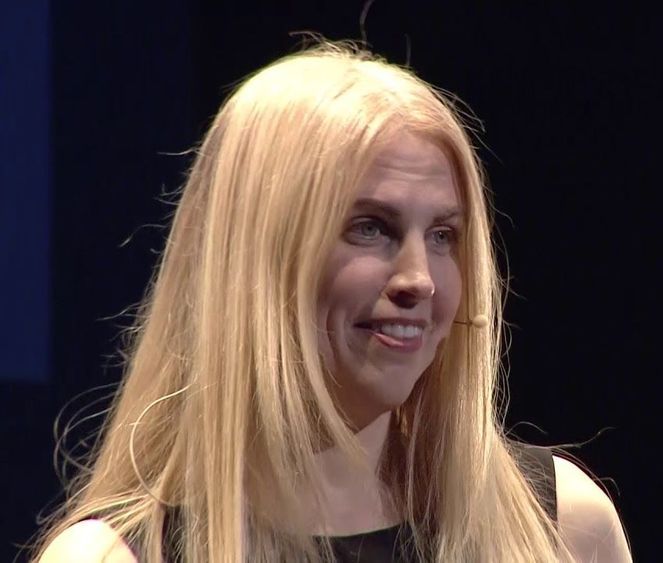
NOTE FROM TED: Please do not look to this talk for medical advice. We’ve flagged this talk, which was filmed at a TEDx event, because it appears to fall outside TEDx’s content guidelines. Gene therapy remains an emerging field of study. The speaker’s claims only reflect her personal views which are not corroborated by scientific evidence. TEDx events are independently organized by volunteers. The guidelines we give organizers are described in more detail here: http://storage.ted.com/tedx/manuals/tedx_content_guidelines.pdf
Liz Parrish is the CEO of BioViva USA Inc, a company committed to increasing health span and combatting the biggest diseases of our time, the diseases of aging. Liz’s talk introduces us to our species’ age-long battle with disease, our successes and achievements, and our new modern enemies to ultimate health. By using the evidence of what science has achieved and what model organisms can tell us about our journey forward, Liz shows us that with the right mentality we can defeat our foes and obtain the “golden sceptre of health”. With the current advances in gene therapy, we are on the brink of living very different lives with an unlimited amount of genetic choices. Did you know that your age is the risk factor in mortality? Listen to this talk and prepare yourself for the future.
This talk was given at a TEDx event using the TED conference format but independently organized by a local community.
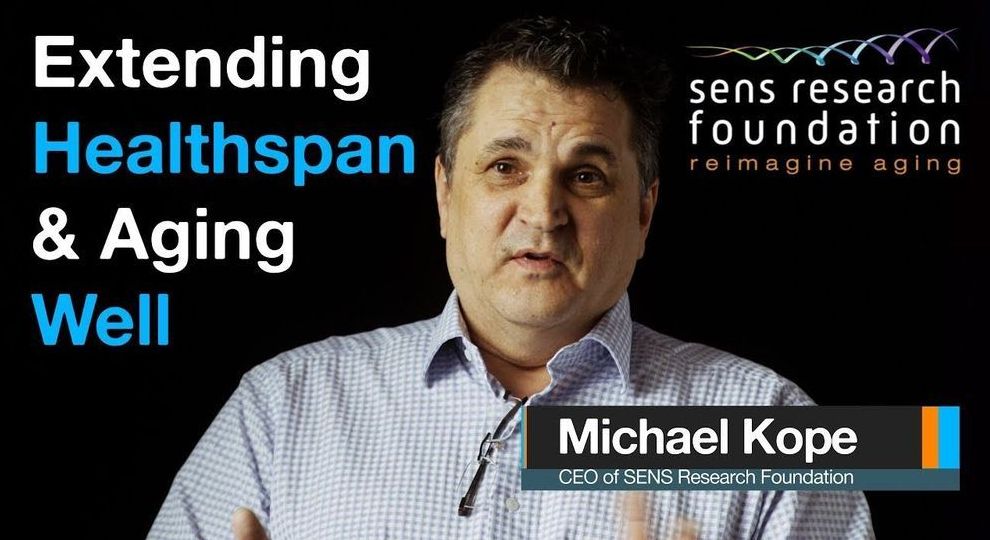
Which disease will you die of first? If you survive that one, which disease is next in line? If we are kept alive but unwell and continue to practice medicine the way we do today, we will all get a long list of diseases — we are just going to be stacking up more and more layers of treatment, becoming more and more unhappy and spending more and more time at the doctors.
Many thanks for watching!
Consider supporting SciFuture by:
a) Subscribing to the SciFuture YouTube channel: http://youtube.com/subscription_center?add_user=TheRationalFuture b) Donating
- Bitcoin: 1BxusYmpynJsH4i8681aBuw9ZTxbKoUi22
- Etherium: 0xd46a6e88c4fe179d04464caf42626d0c9cab1c6b
- Patreon: https://www.patreon.com/scifuture c) Sharing the media SciFuture creates: http://scifuture.org
Kind regards.
Adam Ford
- Science, Technology & the Future.
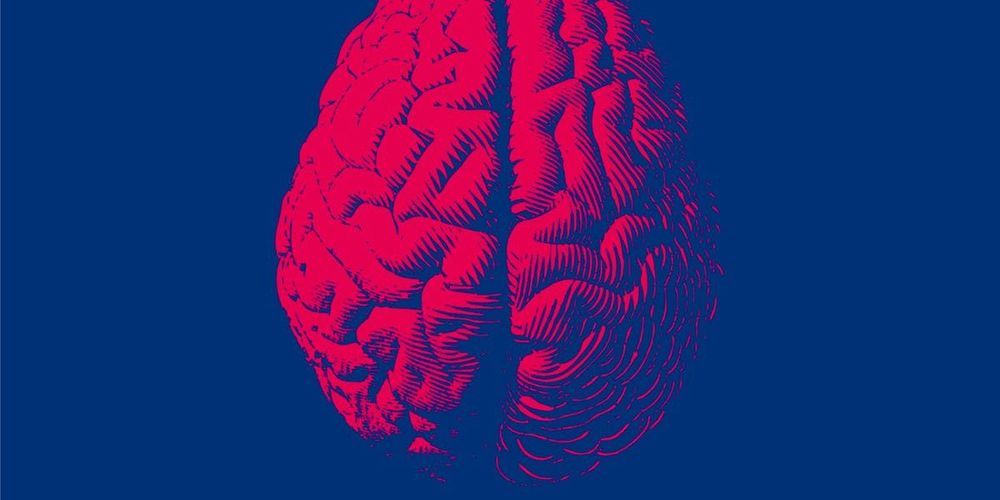
The human brain is always on—trillions of electric currents and transmissions from neuron to neuron flicker constantly. Surprising new research, from the Blavatnik Institute at Harvard Medical School, suggests the secret to living longer may lie in this neural activity, which speeds up and slows down as we age.
Over-excitation, or too much activity in the brain, was linked to shorter life spans, a study published on Wednesday in the journal Nature has found. Meanwhile, suppressing neural over-excitation actually extends life. The study, based on data from humans brains, mice, and worms, is the first showing that the nervous system influences longevity.

The core of what we do at Nanalyze is to tell our readers all they need to know about investing in emerging technologies. Sometimes that story is much, much bigger, and what we’re really talking about is investing in emerging industries. NewSpace is one example, launching about 15 years ago with the emergence of companies like SpaceX and Virgin Galactic. It’s probably only within the last five years that the NewSpace industry has achieved real liftoff, with dozens of startups doing everything from offering launch services to building satellites to developing business analytics from space-based imagery. While we may one day end up living on Mars, we’re more interested in living a long and fruitful life right here on Mother Earth, despite the specter of cancer and dementia. An entire industry is coalescing around human longevity, promising to beat these age-related diseases and extend our lives to biblical proportions.
We’ve been covering the topic of life extension for more than five years, beginning with a profile on an anti-aging company called Human Longevity Inc, whose founders include billionaire serial entrepreneur Peter Diamandis and J. Craig Venter, a leading genomics expert. More recently, we introduced you to nine companies developing products in regenerative medicine, a broad category that refers to restoring the structure and function of damaged tissues or organs. We also tackled the more controversial topic of young blood transfusions earlier this year, as well as covered the 2019 IPO of Precision BioSciences (DTIL), a gene-editing company that wants to fight disease and re-engineer food.
